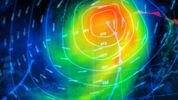Researchers have developed a new AI tool, called RETFound, that can diagnose and predict the risk of various health conditions by analysing retinal images. RETFound is based on a self-supervised learning method that does not require labelled data for training. The tool can learn from millions of unlabelled retinal images and then fine-tune its performance with a small number of labelled images for specific diseases. The tool can detect ocular diseases such as diabetic retinopathy, as well as systemic diseases such as heart failure and Parkinson’s disease. RETFound is one of the few successful applications of a foundation model to medical imaging, and the researchers have made it publicly available for others to adapt and use. However, the tool also has some limitations and ethical challenges that need to be addressed.
I am excited to see AI technology aid in diagnostics that could detect disease earlier, hopefully mitigating the impacts of the disease. Like all AI models, this is a supporting tool and not a replacement for trained professionals.
“This is tremendously exciting,” Liu says. But using RETFound as the basis for other models to detect diseases comes with a risk, she adds. That’s because any limitations embedded in the tool could leak into future models that are built from it. “It is now up to the authors of RETFound to ensure its ethical and safe usage, including transparent communication of its limitations, so that it can be a true community asset.”
 unknownx500
unknownx500
















